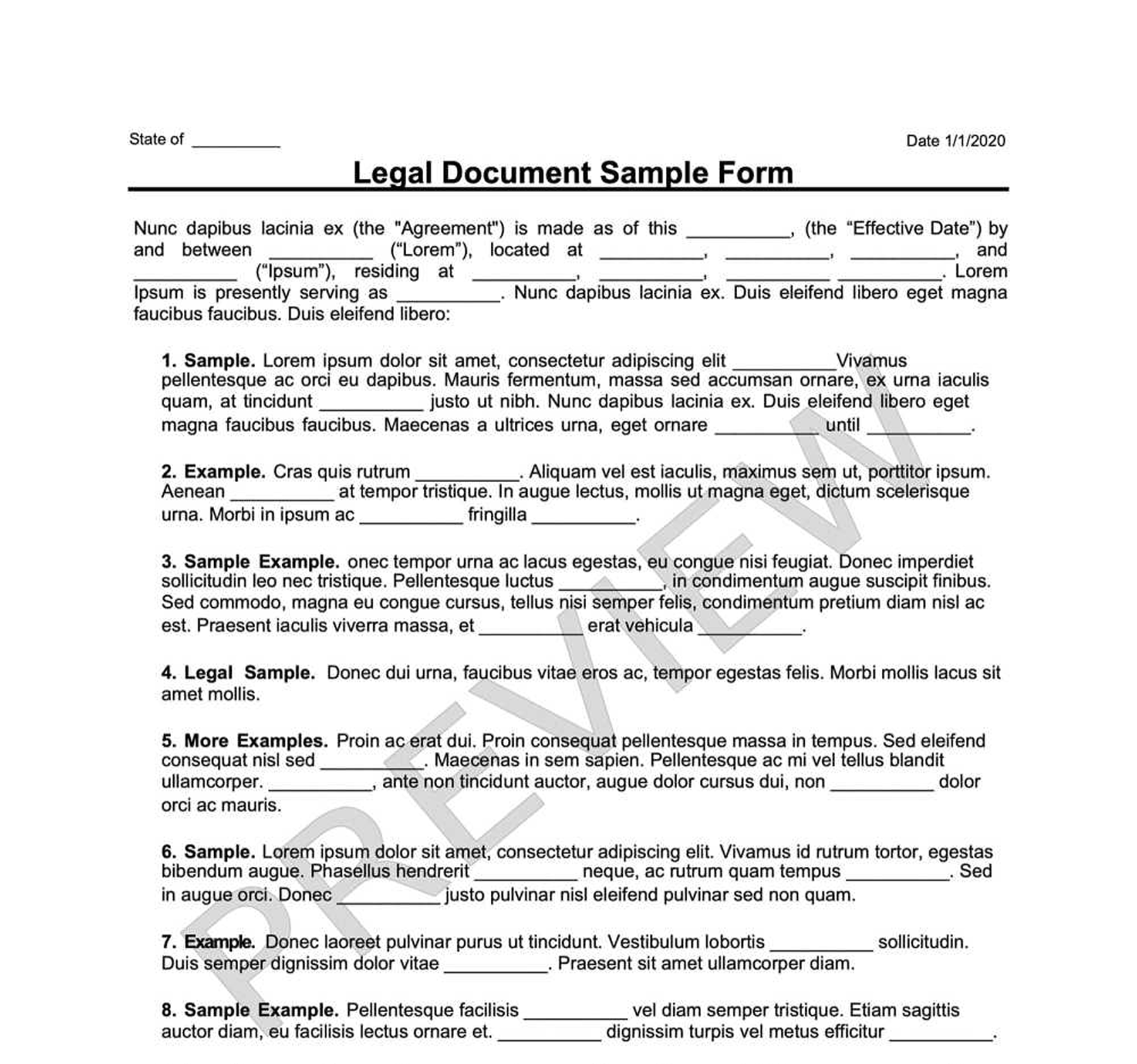Share Repurchase Agreement
A Share Repurchase Agreement is what a corporation would use to buy back its shares from one or more shareholders.

How it Works
Build your selected document.
Answer a few simple questions with step-by-step instructions.
Print & download forms instantly. Sign & make it legal.
What Is a Share Repurchase Agreement?
It’s not uncommon for a corporation to buy back its shares from shareholders. Most commonly, this is done to boost the stock value.
When a corporation buys back its shares, it will use a Share Repurchase Agreement. This document serves this specific purpose and aims to ensure that both the buyer and the seller are protected.
What Is a Share Repurchase Agreement?
The Share Repurchase Agreement is necessary regardless of how the actual repurchase is to be executed. There are several methods a corporation can go about in repurchasing its shares.
It can announce the buyback on the open market, but it can also hold private negotiations with the shareholders. A self-tender offer is a way to repurchase shares by offering a price that’s higher than the value they’re currently traded.
Finally, there’s the Dutch Auction repurchase, where the corporation specifies a price range.
Other Names for Share Repurchase Agreement
Depending on your state, a Share Repurchase Agreement may also be known as:
- Stock Repurchase Agreement
- Company Share Buyback
- Stock Buyback Agreement
- Repurchase Agreement
Who Needs a Share Repurchase Agreement?
A corporation looking to buy back its shares will need a Share Repurchase Agreement. If you think your corporation’s shares are undervalued, you can repurchase some of them and increase the value. Another example will be if a corporation wants to reduce the dilution or acquire more voting rights.
Why Use Swyft Forms for Your Share Repurchase Agreement
Customized for you, by you
Create your own documents by answering our easy-to-understand questionnaires to get exactly what you need out of your Share Repurchase Agreement.
Specific to Your Jurisdiction
Laws vary by location. Each document on Swyft Forms is customized for your state.
How to Create a Share Repurchase Agreement with Swyft Forms
When planning how to word this essential agreement in a bulletproof fashion, you can rely on a ready-to-use template.
Let Swyft Forms help with our extensive library of attorney-vetted legal forms. The process is fast and easy. All you have to do is fill out our easy-to-understand questionnaire. Once complete, simply download your form as a PDF or Word document from your secure online account.
What Information Will I Need to Create My Share Repurchase Agreement?
To create your document, please provide:
- Corporation details: The legal name, the address, and the state of incorporation of the corporation.
- Governing State: The state where the agreement is drafted and whose laws take precedence.
- Effective date: The date when the agreement becomes effective.
- Shareholder Approval: Specify whether shareholder approval is necessary.
- Seller Details: The name, current address, and other info of the seller (shareholder).
- Closing date: Specify the date on which the repurchase is to be completed.
- Confidentiality Clause: Only if necessary, specify whether the seller must keep the sale confidential.
- Deposit: Specify whether the corporation is to put a deposit on the repurchase, and if so, the amount.
- Transaction details: The number of shares being repurchased, the type of shares, and the price.
Share Repurchase Agreement Terms
- Share: A unit of equity in a corporation
- Shareholder: A person or entity who owns shares in a company
- Board of Directors: A group of individuals appointed to manage and oversee a corporation on behalf of the shareholders
- Dividend: Profit distribution to a corporation’s shareholders, if applicable
- Finder’s Fee: The commission paid to the facilitator of the repurchase
- Warranties: Contractual statements by the seller concerning their shares
- Governing Law: Also known as the Choice of Law, a mutually agreed jurisdiction for the enforcement of the contract
- Treasury Stock: A corporation’s reacquired shares
Share Repurchase Agreement Signing Requirements
Share Repurchase Agreement is to be signed by the corporation authorized representative, usually the secretary, and the seller or representative. It is customary to have witnesses to the signature, but notarization is not required.
What to Do with Your Share Repurchase Agreement
After signing, the Share Repurchase Agreement should be distributed to the seller and the corporate representative. For the latter, it would be recorded in the corporation’s stock ledger.
Other Names for Share Repurchase Agreement
- Share Repurchase Agreement Form
- Share Repurchase Agreement Document
- Share Repurchase Agreement Agreement
- Share Repurchase Agreement Contract
- Share Repurchase Agreement Template
- Share Repurchase Agreement Checklist
Who Needs a Share Repurchase Agreement?
Why Use Swyft Forms for Your Share Repurchase Agreement
Customized for you, by you
Specific to Your Jurisdiction
Why choose Swyft Forms?
Create professional documents for thousands of purposes.
Make unlimited documents and revisions.
Our documents are vetted by lawyers and are applicable to all 50 states.
